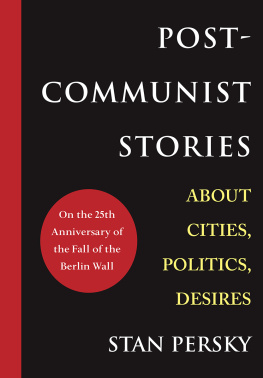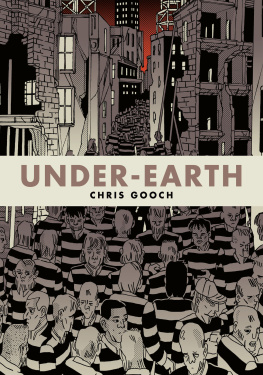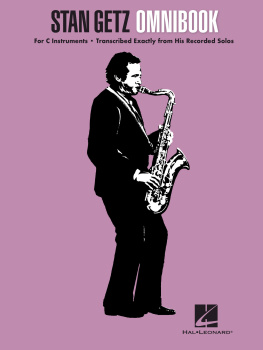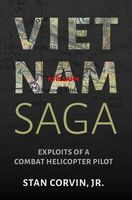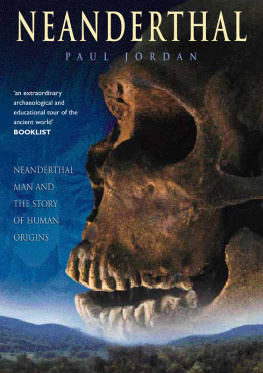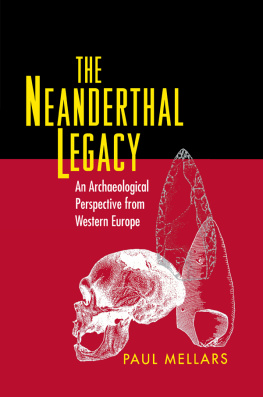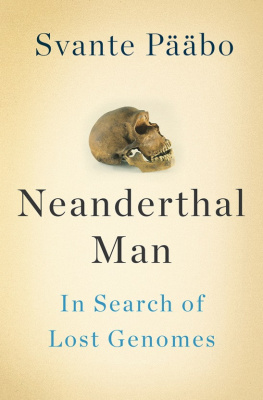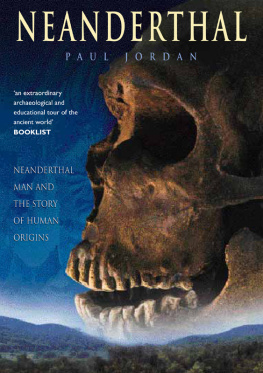Stan Gooch - Cities of Dreams: The Rich Neanderthal Legacy
Here you can read online Stan Gooch - Cities of Dreams: The Rich Neanderthal Legacy full text of the book (entire story) in english for free. Download pdf and epub, get meaning, cover and reviews about this ebook. year: 1995, publisher: Aulis, genre: Romance novel. Description of the work, (preface) as well as reviews are available. Best literature library LitArk.com created for fans of good reading and offers a wide selection of genres:
Romance novel
Science fiction
Adventure
Detective
Science
History
Home and family
Prose
Art
Politics
Computer
Non-fiction
Religion
Business
Children
Humor
Choose a favorite category and find really read worthwhile books. Enjoy immersion in the world of imagination, feel the emotions of the characters or learn something new for yourself, make an fascinating discovery.

- Book:Cities of Dreams: The Rich Neanderthal Legacy
- Author:
- Publisher:Aulis
- Genre:
- Year:1995
- Rating:5 / 5
- Favourites:Add to favourites
- Your mark:
- 100
- 1
- 2
- 3
- 4
- 5
Cities of Dreams: The Rich Neanderthal Legacy: summary, description and annotation
We offer to read an annotation, description, summary or preface (depends on what the author of the book "Cities of Dreams: The Rich Neanderthal Legacy" wrote himself). If you haven't found the necessary information about the book — write in the comments, we will try to find it.
Cities of Dreams: The Rich Neanderthal Legacy — read online for free the complete book (whole text) full work
Below is the text of the book, divided by pages. System saving the place of the last page read, allows you to conveniently read the book "Cities of Dreams: The Rich Neanderthal Legacy" online for free, without having to search again every time where you left off. Put a bookmark, and you can go to the page where you finished reading at any time.
Font size:
Interval:
Bookmark:
By the same author
Total Man
Personality and Evolution
The Neanderthal Question
The Paranormal
Guardians of the Ancient Wisdom
The Double Helix of the Mind
The Secret Life of Humans
Creatures From Inner Space
with M.L. Kellmer Pringle
Four Years On
with Chris Evans
Science Fiction as Religion
with Rosemary Dinnage
The Child with Asthma

CITIES OF DREAMS
Stan Gooch
Aulis Publishers
London

CITIES OF DREAMS
Aulis Publishers
London
First published by Century Hutchinson Ltd 1989
Aulis e dition published 1995
Copyright Stan Gooch 1989 and 1995
ISBN 978-1-898541-03-5
All rights reserved. By payment of the required fees you have been granted the non-exclusive, non-transferrable right to access and read this eBook on screen.
No part of this publication may be reproduced, transmitted, or stored in or introduced into any information storage and retrieval system, now known or hereinafter invented, without express written permission from Aulis Publishers.
A CIP catalogue record for this title is available from the British Library
Aulis Publishers
www.aulis.com

For
COLIN WILSON
master encyclopaedist

Contents
Introduction
S ome twenty years ago a leading and respected psychologist, the late M.L. Kellmer Pringle we were currently writing a book together confided in me that in her view in only a few years time we would know everything there was to know about human psychology and human society. This comment, which left me completely stunned for several days, was among the reasons why I felt I had to leave the psychological establishment.
It was, however, by no means the first such comment I had heard, either before or since, not just from psychologists, but from leading biologists, anthropologists, doctors, historians the pillars of the academic establishment the view that, really, we were well on the way to knowing everything about mankind. In all fields relating to human evolution, to the human psyche, it was pretty much a question only of tying up the loose ends, of a few details here, a few details there. And that would be that.
My own position was a very different one. Not only did I find myself each day learning more and more about less and less, as Murray Butler put it but in considering the currently accepted theories in the fields of study relating to mankind, I saw only more and more inadequacy in, more and more objections to, the confident explanations on offer. Obviously I was suffering from some of my terminal deficiency that was going to (and indeed did) shunt me out then career and into the arms of the other heretics.
So to the topic of the present book. The question it puts is simply this. Is the story of the origins and development of modern mankind, that is, of ourselves, really that which we find in our present-day school books and encyclopaedias? Or is it the case that these accepted accounts are in fact quite hopelessly biased and inadequate?
There is the two-part question. By the end of the book I hope the reader will feel able to give an emphatic no to the first part, and an emphatic yes to the second.
Chapter One
Suppose
L ong before the arrival of the first European in the New World, the resident North American Indians there had evolved an in many ways advanced culture and civilisation. They had, after all, been in residence for some 20,000 years. Already by about 10,000 BC anthropologists record large-scale, continuous communities.
Prior to 2000 BC , these varied peoples of North America knew weaving, tent and weapon making, medicine, music and many other skills of civilisation though, as it happens, not the art of pottery. They also had by then a complex political life, alongside rich cultural and religious traditions, and great bodies of ancient folklore reaching back to the time when their distant ancestors came first across the stepping stones to the virgin continent. Some of the tribes spent much of each day, every day, in complex religious ritual, not unlike orthodox Jews and Moslems of our present time. Others, of course, were equally dedicated to hunting or warfare. Yet, we must emphasise, these same complex Indians had no written language: nor did they build any permanent dwellings.
Consider now the following hypothetical situation.
Suppose this long-lasting and widespread North American civilisation had never been contacted by any other human group. And suppose, further, that some sudden catastrophe overtook this family of nations an unstoppable disease perhaps, or decades of severe drought, followed then by disease, we have enough such scenarios in our world today so that all perished. And suppose then that 25,000 years pass, or even 50,000. What trace would any later explorer then find of those myriad peoples and their complex cultural life? Why, none. Effectively, none. Just a few stone or bone weapons and implements. No tents, no dancing, no stories. Only a few, silent skulls one here in a dry, desert gully, another trampled in fragments along some former river, and look, three skulls together even in this icy northern cave. Nothing more.
Or consider, now, a slightly different scenario.
In this case the Indians are overrun by an invading and very different ethnic type. Still more, even, than the Europeans who, in historical reality, actually did overrun the Indian peoples, this hypothetical invader hates and despises all that the Indian stands for hates even their physical appearance, their very existence. At the hands of this invader the Indians are therefore relentlessly hunted down, butchered, and erased en masse, along with all their culture and beliefs. (This very scenario of course actually took place when the Europeans arrived in Tasmania we do not even need to make an effort of imagination here.) During the relatively short period of the overrunning, however, there occurs widespread rape of the Indian women, some few of whom then live to escape back to their own people. In addition, some natives are kept alive deliberately by the conquerors for general amusement, both as slaves and concubines. (Precisely these events, once again, actually occurred in Tasmania.) From these various circumstances there arises, over time, a small half-breed population, a group having very confused and uneasy social status. (One simply doesnt know quite what to do with them, or about them.) Yet some of these half-breeds do nevertheless find some sort of social acceptance, and are absorbed into the invading stock. Others, perhaps, band together, and take off on their own account.
Now, however, in our hypothetical scenario (but how hypothetical is it really, so far?) disaster overtakes the invaders themselves. Abruptly there onsets one of the frequent ice ages that have so much characterised our planet in recent geological time. In the course of only a few decades the glaciers slide massively and relentlessly down from the north. The climate is suddenly no longer temperate, but arctic and sub-arctic. Even as far down as the centre of the continent, the covering ice is literally miles high as it was in fact in central Britain and northern Europe just a few thousand years ago. The escape route south for our invaders is ultimately barred. The far southlands, perhaps, are already occupied by other vigorous peoples.
So now in the following millennia only a rump of the once proud conquerors eke out a subsistence existence in a bleak, inhospitable landscape. Under these conditions 5,000 years pass. Or perhaps 10,000. And then the ice cap once again suddenly, and inexplicably, withdraws back to its permanent home within the true arctic circle.
Next pageFont size:
Interval:
Bookmark:
Similar books «Cities of Dreams: The Rich Neanderthal Legacy»
Look at similar books to Cities of Dreams: The Rich Neanderthal Legacy. We have selected literature similar in name and meaning in the hope of providing readers with more options to find new, interesting, not yet read works.
Discussion, reviews of the book Cities of Dreams: The Rich Neanderthal Legacy and just readers' own opinions. Leave your comments, write what you think about the work, its meaning or the main characters. Specify what exactly you liked and what you didn't like, and why you think so.

